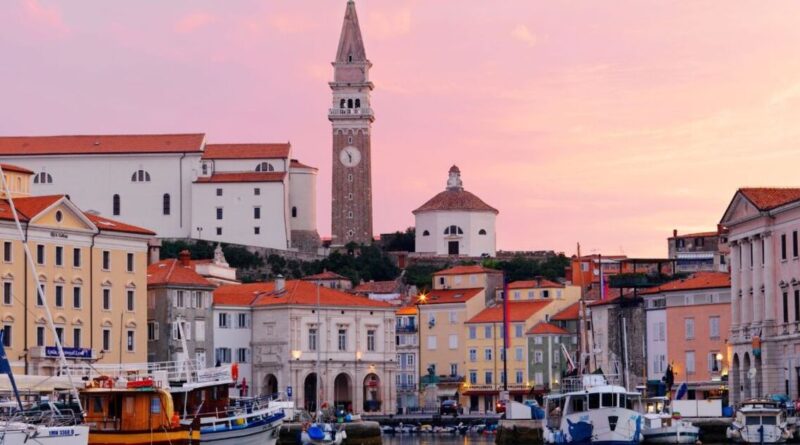The eastern European country with hardly any tourists that’s one of world’s safest | Travel News | Travel
Slovenia, which has a population of around 2.1 million, is the eighth safest country in the world.
The eastern European country, made up of mostly mountains and forests, is known for its natural and cultural diversity.
The Global Peace Index (GPI) ranks the safest and most peaceful countries in the world against 23 indicators, and the lower the score, the higher a nation is ranked in terms of safety.
Slovenia received a score of 1.334, not far from Iceland’s score of 1.124, which ranked number one as the safest country in the world. The country scored especially high in the category of travel security, medical risks and road safety.
However, despite it being one of the safest countries in the world, not many people visit the country. Last year was a record-breaking year for tourism in the country, with 6.2 million, which, compared to the 38 million the UK saw last year, is quite low.
The beautifully landscaped country has many tourist gems throughout. Ljubljana, the country’s capital, is dubbed “the green capital of a green country.” It is full of amazing architecture dating back to the Roman period.
It is also home to the country’s largest park, Tivoli City Park, designed by French engineer Jean Blanchard. The Tivoli Castle, the National Museum of Contemporary History and the Tivoli Sports Hall are all notable buildings which stand in the park.
Slovenia’s Postonja cave is the most visited tourist cave in Europe with a railway that’s been operating for 140 years. The unique train takes you on a 1.5-hour guided tour through the country’s underground network of karst corridors, halls and galleries.
During Christmas time, the cave hosts the largest live nativity scene in the subterranean world with more than 500 performers.
Want a more relaxing option? Escape to the Logar Valley, a peaceful area that provides an opportunity for hiking, cycling, horseback riding and more. It is also home to many waterfalls, including Rinka Falls, which has a 90-metre drop.
Slovenia truly has a rich cultural heritage with 12 “gems” part of UNESCO’s World Heritage, including UNESCO’s natural sites, cultural sites and Representative List of Intangible Cultural Heritage.
An average direct flight to Slovenia from the UK takes around two hours.





